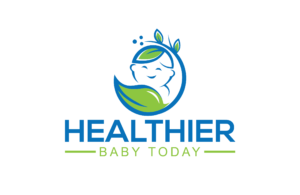Infant nutrition – Learn more with Healthier Baby Today! Ensuring optimal infant nutrition is a cornerstone of early childhood development, with profound implications for a child’s health and well-being.
In exploring essential practices, we delve into the vital aspects of Infant Nutrition and offer invaluable Breastfeeding Tips to guide parents and caregivers in nourishing their little ones.
From the unparalleled benefits of breastfeeding to practical insights on maintaining a healthy diet, this resource aims to empower caregivers with the knowledge needed to provide the best start for their infants.
Discover evidence-based information, actionable advice, and supportive tips that foster a strong foundation for a lifetime of health and vitality.
Table of Contents
1. Breastfeeding Benefits

1. Immunological Advantages
- Breast milk contains antibodies that boost the infant’s immune system.
- It protects against infections and illnesses, reducing the risk of respiratory and gastrointestinal issues.
2. Nutritional Composition of Breast Milk
- Tailored to meet Infant Nutrition needs.
- Rich in essential nutrients, enzymes, and hormones for optimal growth and development.
3. Bonding and Emotional Benefits
- Promotes a strong emotional bond between mother and baby.
- Skin-to-skin contact during breastfeeding enhances emotional connection.
4. Long-Term Health Impact
- Reduces the risk of chronic diseases for both mother and baby.
- Associated with lower obesity rates, diabetes, and certain cancers in later life.
5. Infant Nutrition
- Optimal Growth: Breast milk provides the perfect balance of nutrients for a baby’s growth.
- Digestibility: Easily digestible, reducing the likelihood of gastrointestinal discomfort.
- Brain Development: Contains essential fatty acids crucial for cognitive development.
6. Breastfeeding Tips
- Establish a Routine – Set a consistent feeding schedule to meet the baby’s nutritional needs.
- Proper Latch – Ensure a correct latch for comfortable and effective breastfeeding.
- Hydration and Nutrition – Stay well-hydrated and maintain a nutritious diet to support milk production.
- Seek Support – Consult healthcare professionals or join support groups for advice and encouragement.
- Pump and Store – For flexibility and convenience, consider expressing and storing breast milk.
2. Breastfeeding Techniques

1. Latching and Positioning
- Ensure a deep latch to prevent nipple pain and facilitate effective milk transfer.
- Experiment with different breastfeeding positions, such as cradle hold, cross-cradle hold, and football hold, to find what is comfortable for both mother and baby.
2. Frequency and Duration of Feeds
- Newborns feed 8-12 times in 24 hours, and providing on-demand is crucial for establishing a healthy milk supply.
- Allow the baby to nurse for as long as they are interested, ensuring they get both foremilk and hindmilk.
3. Expressing and Storing Breast Milk
- Use a breast pump to express milk when direct breastfeeding is impossible or maintain milk supply.
- Store said milk in clean, labeled containers, and follow recommended guidelines for storage duration and temperatures.
4. Troubleshooting Common Issues
- Nipple Pain – Ensure the baby is latched correctly, and consider using lanolin cream or breast shields for relief.
- Low Milk Supply – Stay well-hydrated, nurse frequently, and consider pumping after feeds to increase milk production.
- Engorgement – Apply warm compresses, express a small amount of milk before feeds, and use cold packs to relieve swelling.
- Blocked Ducts and Mastitis – Massage the affected area, apply warm compresses, and continue breastfeeding or expressing milk to alleviate blockages.
5. Infant Nutrition
- Balanced Diet for Mothers: Mothers should maintain a nutritious diet to support the quality of breast milk.
- Vitamin D Supplement: In some cases, pediatricians may recommend a vitamin D supplement for breastfed infants.
6. Breastfeeding Tips
- Comfortable Seating – Sit in a relaxed, supportive chair with pillows to provide proper support during breastfeeding.
- Hydration – Drink plenty of water to stay well-hydrated, especially during breastfeeding sessions.
- Relaxation Techniques – Practice deep breathing and relaxation techniques to enhance the breastfeeding experience for both mother and baby.
- Professional Support – Seek guidance from lactation consultants or healthcare professionals for personalized advice and support.
3. Maternal Nutrition During Breastfeeding

Nutrition plays a crucial role during breastfeeding, as the mother’s diet directly impacts the quality of breast milk.
A well-balanced and nutrient-rich diet supports the mother’s health and the optimal growth and development of the nursing infant.
1. Dietary Recommendations
- Emphasize a diverse and balanced diet that includes a variety of fruits, vegetables, whole grains, lean proteins, and dairy or dairy alternatives.
- Ensure an adequate intake of essential nutrients such as calcium, iron, vitamin D, and omega-3 fatty acids.
- Breastfeeding Tips Limit the consumption of processed foods, added sugars, and caffeine.
2. Hydration
- Adequate hydration is essential for milk production and overall well-being.
- Drink plenty of water throughout the day, and consider incorporating hydrating foods with Breastfeeding Tips such as fruits and vegetables into your diet.
3. Managing Allergens and Sensitivities
- If the infant shows signs of allergies or sensitivities, the mother may need to identify and eliminate potential allergens from her diet.
- Common allergens include dairy, nuts, soy, and gluten. Consultation with a healthcare professional or a registered dietitian can guide an elimination diet if needed.
4. Supplements for Breastfeeding Mothers
- Folic Acid – Some mothers may continue taking folic acid supplements, especially if they do so during pregnancy.
- Vitamin D – Depending on sunlight exposure, a vitamin D supplement may be recommended for both mother and baby.
- Omega-3 Fatty Acids – Consider including sources of omega-3s, or a supplement, to support infant brain development.
- Iron – Iron supplements may be necessary if there’s a deficiency, but it’s essential to consult with a healthcare professional for guidance.
Breastfeeding mothers must listen to their bodies, maintain a well-rounded diet, and adjust their nutritional intake based on individual needs.
Regular communication with healthcare providers and seeking guidance from a registered dietitian can ensure that both mother and baby receive the necessary Infant Nutrition for optimal health during the breastfeeding period.
4. Introduction to Formula Feeding

Formula feeding is a viable and standard method of nourishing infants when breastfeeding is impossible or chosen.
Infant formulas are carefully designed to provide the essential nutrients needed for a baby’s growth and development.
This guide will explore the types of infant formula, considerations for choosing the correct procedure, proper preparation and storage guidelines, and transitioning from breast milk to formula.
5. Types of Infant Formulas
1. Cow’s Milk-Based Formula
- Most commonly used and well-tolerated.
- Contains proteins, fats, and carbohydrates similar to those in breast milk.
2. Soy-Based Formula
- Suitable for infants with lactose intolerance or those on a vegetarian diet.
- Made from soy protein and fortified with essential nutrients.
3. Hypoallergenic Formula
- Designed for infants with allergies or sensitivities.
- Hydrolyzed proteins or amino acid-based formulas are easier to digest.
4. Specialized Formulas
- Developed for specific medical conditions, such as preterm birth or metabolic disorders.
- Prescribed by healthcare professionals based on individual needs.
6. Choosing the Right Formula
1. Consult with Healthcare Professionals
- Discuss formula options with pediatricians or healthcare providers.
- Consider the baby’s nutritional needs, health conditions, and family preferences.
2. Read Labels
- Understand the ingredients and nutritional composition of different formulas.
- Choose formulas with essential nutrients, including iron, DHA, and ARA.
7. Preparation and Storage Guidelines

1. Follow Mixing Instructions
- Measure the formula accurately according to package instructions.
- Use the recommended water-to-formula ratio.
2. Maintain Cleanliness
- Sterilize bottles and nipples before each use.
- Prepare the formula on a clean and sanitized surface.
3. Temperature Considerations
- Serve formula at a safe and comfortable temperature for the baby.
- Discard any unused formula after feeding.
4. Storage
- Store the prepared formula in the refrigerator for a limited time.
- Follow specific guidelines for storing opened and unopened formula containers.
8. Transitioning from Breast Milk to Formula

1. Gradual Transition
- Introduce the formula gradually, mixing it with breast milk to ease the transition.
- Observe the baby’s response and adjust the ratio as needed.
2. Comfort and Bonding
- Maintain close physical contact during feeding to preserve the bonding experience.
- Respond to the baby’s cues and provide comfort during the transition.
As with any feeding method, open communication with healthcare professionals is essential to ensure the baby receives adequate nutrition and care.
Formula feeding can be a positive and nurturing experience when carefully considering the baby’s needs and circumstances.
Helpful Tips on Infant Nutrition…
In conclusion, whether opting for breastfeeding or formula feeding, the key is prioritizing the well-being of both mother and baby.
Each method has unique benefits and considerations, often depending on individual circumstances.
Adequate nutrition, cleanliness in preparation, and responsive care during feeding are essential for fostering a healthy and positive feeding experience.
Ultimately, the journey of nurturing an infant is personal, and seeking guidance from healthcare professionals ensures a tailored approach that meets the specific needs of both mother and child.


